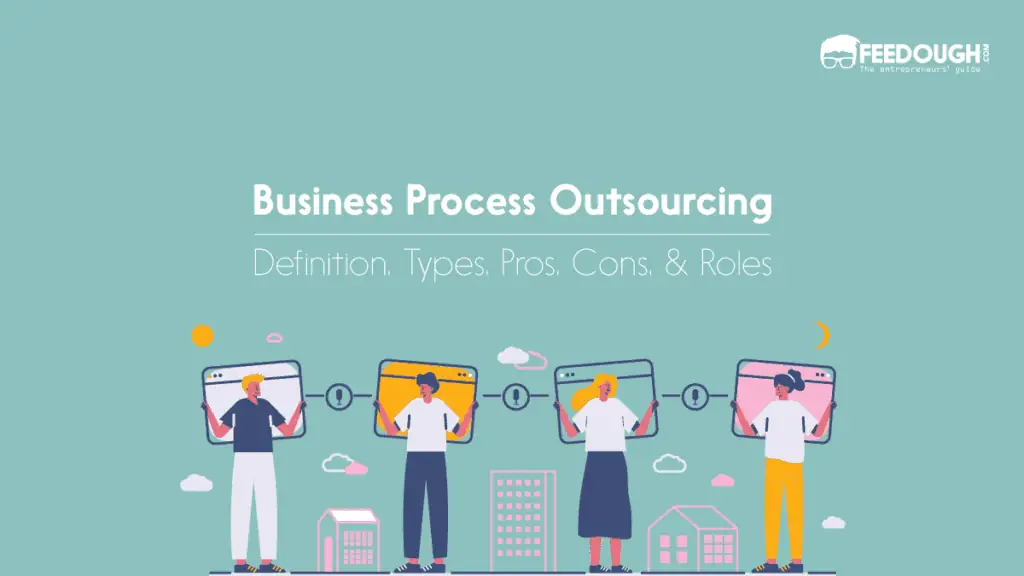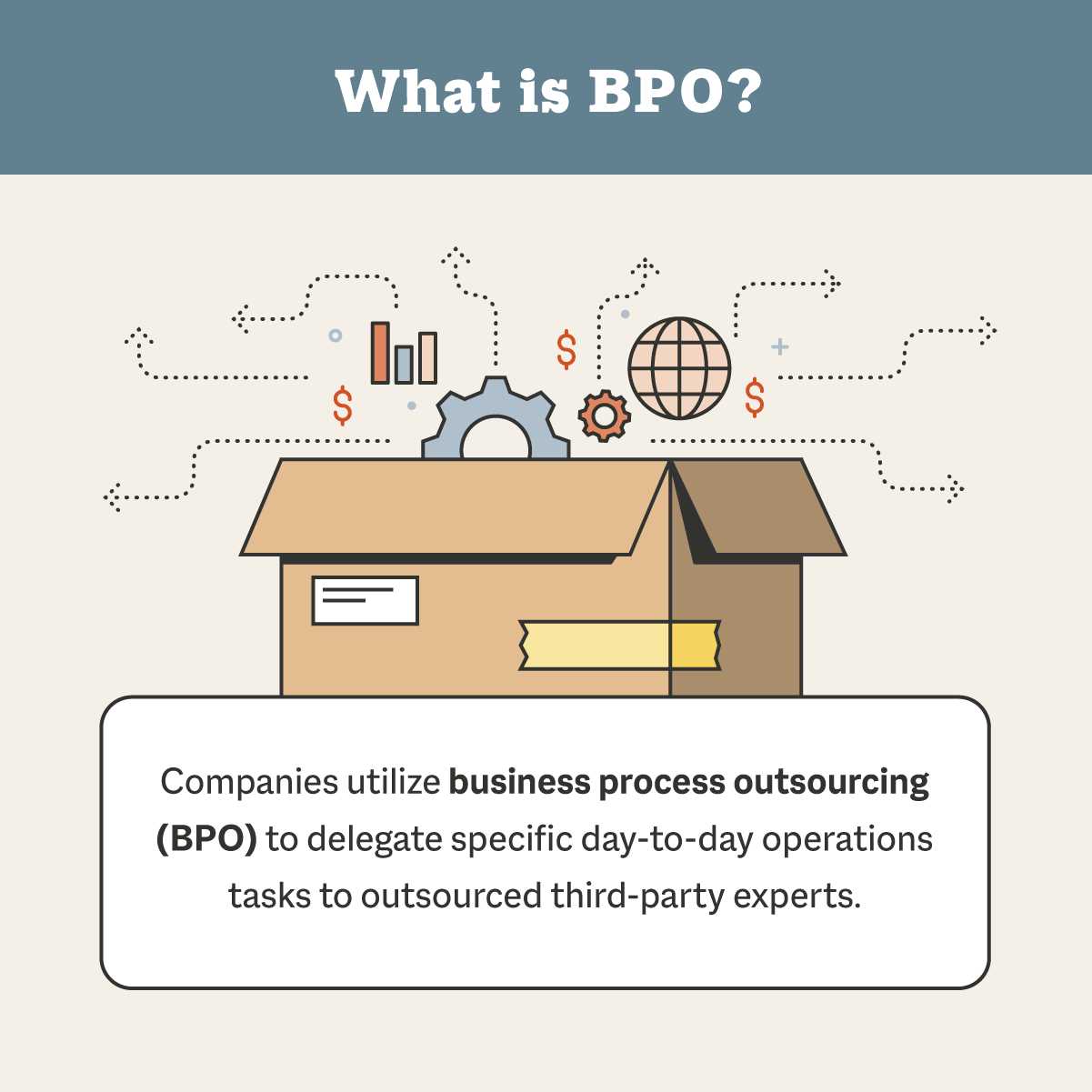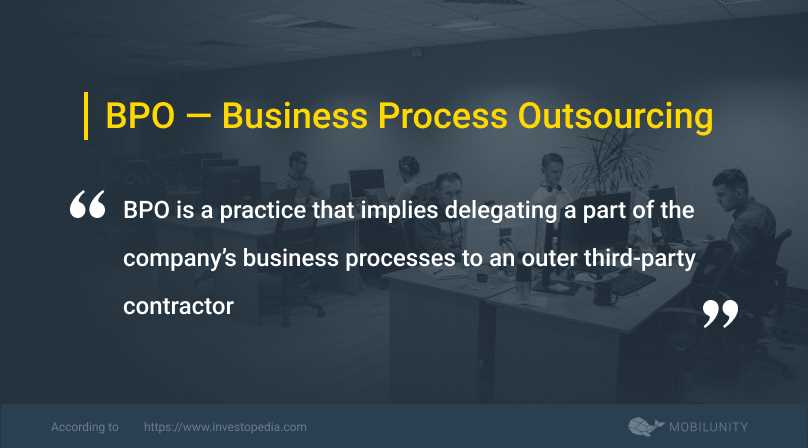What is Business Process Outsourcing (BPO)?

Business Process Outsourcing (BPO) refers to the practice of contracting specific business functions or processes to a third-party service provider. These functions or processes can include customer support, data entry, payroll processing, IT support, and many others.
By outsourcing these functions, companies can focus on their core competencies and strategic objectives while leaving the non-core activities to specialized service providers. This allows businesses to streamline their operations, reduce costs, and improve efficiency.
Definition and Scope
The scope of BPO can vary depending on the needs of the company. It can involve outsourcing a single process or multiple processes across various departments. The processes can be either front-office or back-office functions.
Front-office functions include customer-facing activities such as customer support, sales, and marketing. Back-office functions, on the other hand, involve internal operations like accounting, human resources, and IT support.
Overall, BPO enables companies to leverage external expertise, technology, and resources to enhance their business operations and achieve better results.
Operational Mechanics of BPO

The operational mechanics of BPO involve several key components and processes. These include:
1. Assessment and Planning: This stage involves identifying the processes that can be outsourced, evaluating potential service providers, and developing a comprehensive outsourcing strategy.
2. Transition and Knowledge Transfer: Once a service provider is selected, there is a transition period where the company and the service provider work together to transfer knowledge, establish communication channels, and ensure a smooth transition of operations.
3. Service Delivery and Management: This stage involves the actual delivery of outsourced services by the service provider. It includes monitoring performance, managing service level agreements, and addressing any issues or concerns that may arise.
4. Continuous Improvement: BPO is an ongoing process, and companies should continuously evaluate and improve their outsourcing strategy. This involves regular performance reviews, feedback sessions, and identifying areas for optimization and innovation.
Definition and Scope
The scope of BPO can vary widely depending on the needs and requirements of the business. It can include tasks such as customer support, data entry, accounting, human resources, IT services, and many others. BPO allows businesses to focus on their core competencies while delegating non-core tasks to specialized service providers.
One of the key advantages of BPO is cost savings. By outsourcing certain tasks, businesses can reduce labor and operational costs, as well as gain access to specialized expertise and technologies. BPO also offers flexibility and scalability, allowing businesses to easily adjust their outsourcing needs based on market conditions and business growth.
Furthermore, BPO enables businesses to improve efficiency and productivity by leveraging the expertise and resources of external service providers. These providers often have extensive experience and knowledge in specific areas, which can result in improved quality and faster turnaround times.
Operational Mechanics of BPO

Business Process Outsourcing (BPO) involves the delegation of specific business processes to external service providers. The operational mechanics of BPO encompass various stages and processes that ensure the smooth functioning of the outsourced tasks.
Once a company decides to outsource certain business processes, it begins by identifying the specific tasks or functions that can be handed over to a third-party provider. This may include customer service, data entry, payroll processing, IT support, or any other non-core activities.
After identifying the tasks, the company initiates the process of selecting a suitable BPO service provider. This involves conducting extensive research, evaluating potential providers based on their expertise, experience, track record, and cost-effectiveness. The chosen provider should have the necessary infrastructure, technology, and skilled workforce to handle the outsourced tasks efficiently.
Once the agreement is in place, the company begins the process of transitioning the identified tasks to the BPO provider. This involves sharing relevant information, providing access to necessary systems and tools, and conducting training sessions to ensure a smooth handover of responsibilities.
Once the tasks are successfully transitioned, the BPO provider takes over the day-to-day operations of the outsourced processes. They are responsible for executing the tasks according to the agreed-upon SLAs, ensuring quality and efficiency, and providing regular reports and updates to the company.
Throughout the operational phase, the company maintains regular communication and monitoring mechanisms with the BPO provider to ensure that the outsourced tasks are being performed as per expectations. This includes conducting periodic performance reviews, addressing any issues or concerns, and making necessary adjustments to the outsourcing arrangement if required.
Key Components and Processes
1. Service Level Agreements (SLAs)
2. Communication Channels
Effective communication is vital in any outsourcing relationship. BPO providers utilize various communication channels, such as email, phone calls, and video conferencing, to stay connected with their clients. Regular communication ensures that both parties are aligned and can address any issues or concerns promptly.
3. Data Security and Confidentiality
Data security and confidentiality are of utmost importance in BPO. Service providers must have robust security measures in place to protect sensitive client information. This includes secure data transmission, restricted access to data, and compliance with relevant data protection regulations.
4. Quality Assurance

Quality assurance processes are implemented to ensure that the services provided by the BPO service provider meet the agreed-upon standards. This includes monitoring and evaluating performance, conducting regular audits, and implementing corrective actions when necessary. Quality assurance helps maintain consistency and high-quality output.
5. Scalability and Flexibility
Scalability and flexibility are essential components of BPO. Service providers should have the ability to scale their operations up or down based on the client’s needs. This allows businesses to adapt to changing market conditions and optimize their operations accordingly.

Emily Bibb simplifies finance through bestselling books and articles, bridging complex concepts for everyday understanding. Engaging audiences via social media, she shares insights for financial success. Active in seminars and philanthropy, Bibb aims to create a more financially informed society, driven by her passion for empowering others.
